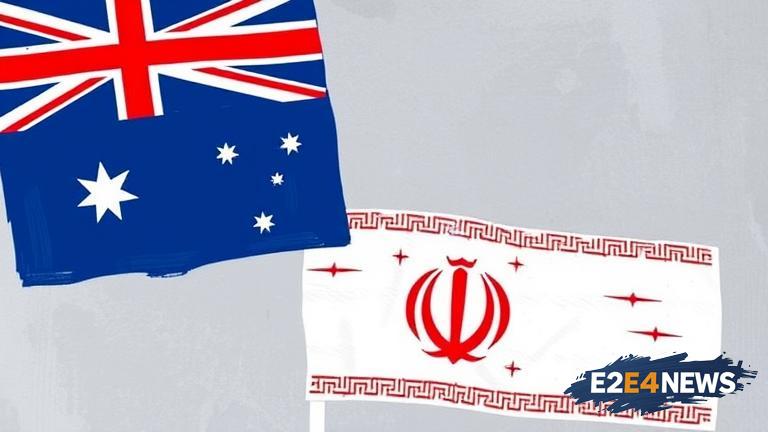In a significant escalation of diplomatic tensions, Australia has taken the drastic step of expelling Iran’s envoy from the country. This move comes after Australia directly blamed Iran for being behind two recent antisemitic attacks that have shaken the community. The decision to expel the Iranian diplomat is a clear indication of Australia’s strong stance against acts of antisemitism and its commitment to protecting its Jewish population. The attacks in question have been condemned by leaders across the globe, with many expressing solidarity with the victims and their families. Australia’s Foreign Minister has been at the forefront of condemning these acts, emphasizing the need for all countries to respect and protect religious minorities. The expulsion of the Iranian envoy is seen as a strong message to Iran and other countries that such acts will not be tolerated. The Australian government has made it clear that it will not hesitate to take firm action against any country found to be involved in promoting or supporting antisemitism. The Jewish community in Australia has welcomed the government’s decision, seeing it as a necessary step to ensure their safety and security. However, the move is likely to strain relations between Australia and Iran, potentially affecting diplomatic and trade ties. Iran has yet to respond officially to the expulsion of its envoy, but it is expected to react strongly to the allegations and the diplomatic action taken by Australia. The international community is watching the situation closely, with many calling for calm and restraint. Despite the tensions, Australia remains committed to fighting antisemitism in all its forms, both domestically and internationally. The country has a long history of supporting Jewish communities and has been at the forefront of global efforts to combat hate crimes. The recent attacks have highlighted the need for increased vigilance and cooperation between countries to share intelligence and best practices in preventing such incidents. Australia’s action against Iran is part of a broader strategy to hold countries accountable for their actions and to ensure that those who promote or support hate crimes are brought to justice. The situation is complex, with geopolitical implications that extend beyond the immediate issue of antisemitic attacks. It reflects deeper tensions between nations with differing values and political systems. As the situation continues to unfold, there are concerns about potential repercussions, including the impact on Australian citizens living in or visiting Iran. The Australian government has advised its citizens to exercise caution when traveling to Iran, given the current diplomatic climate. In conclusion, the expulsion of Iran’s envoy from Australia marks a significant moment in the global fight against antisemitism. It underscores the importance of international cooperation and the need for countries to stand together against hate crimes. As the world watches, it is clear that the situation between Australia and Iran will continue to evolve, with potential long-term implications for diplomatic relations and global security.
